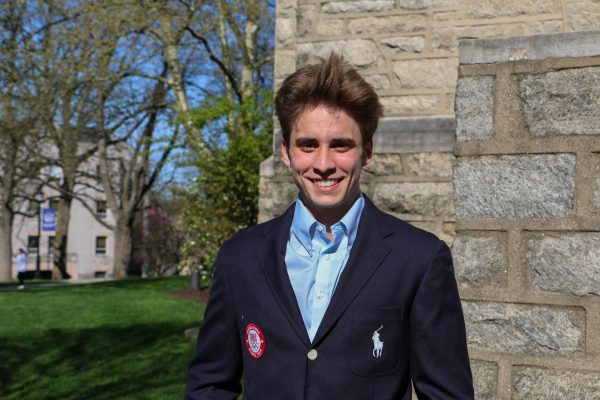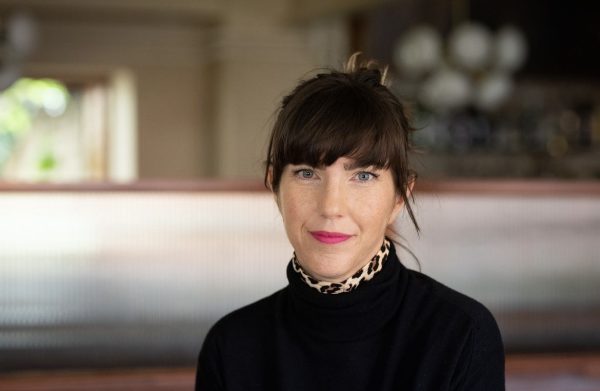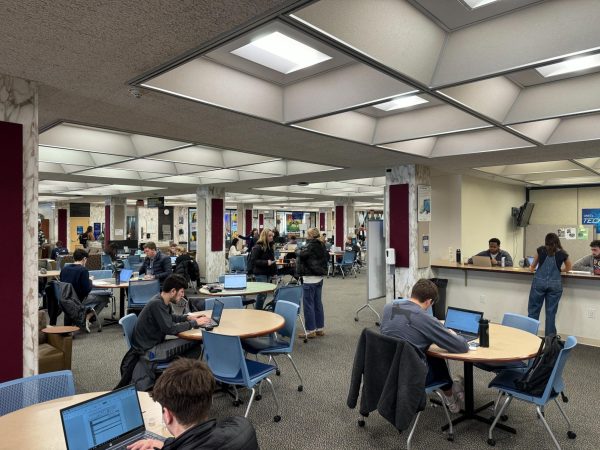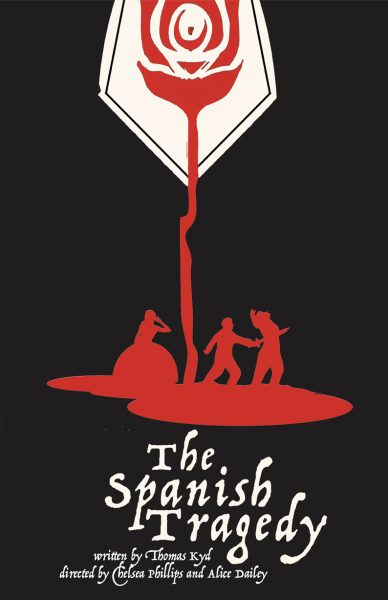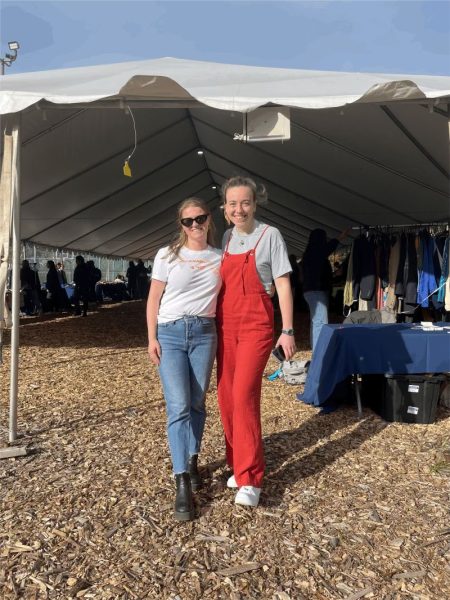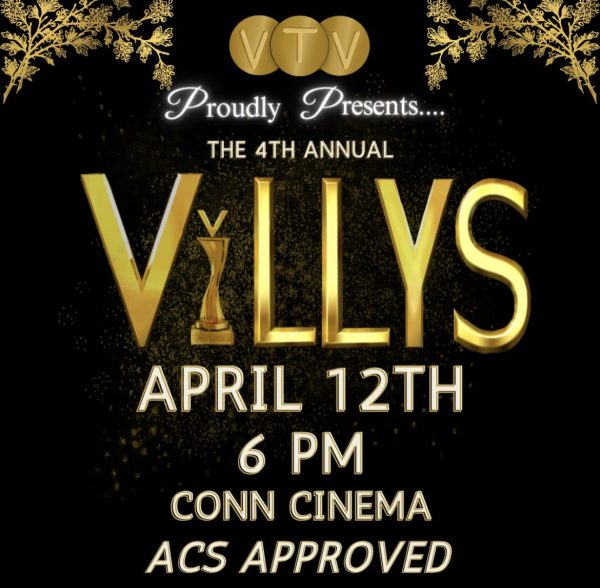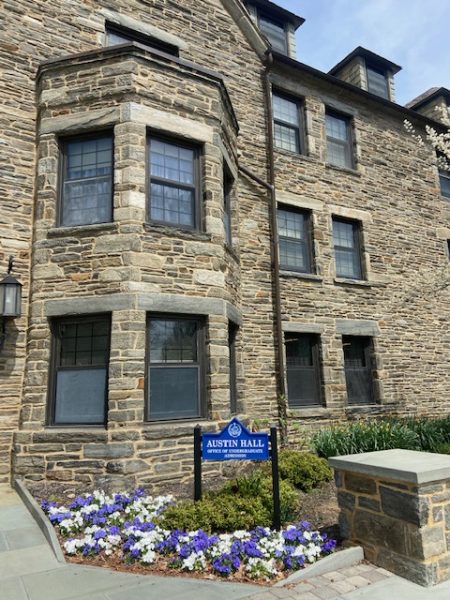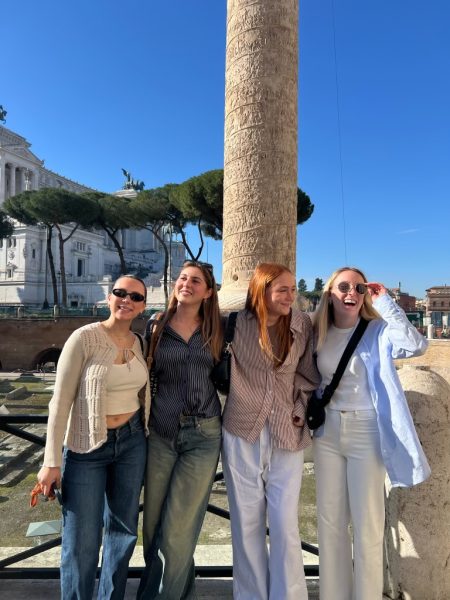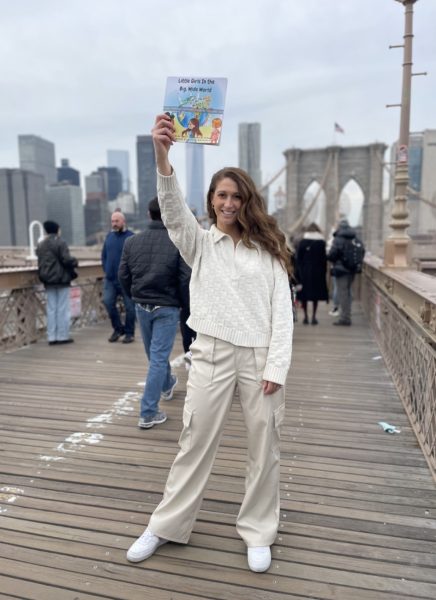Egyptian revolution revisited in
November 20, 2014
Closing a successful semester-long film series, renowned documentary “The Square” screened to a full audience in the Connelly Cinema Wednesday, Nov. 12. Following the showing, the film’s director Jehane Noujaim hosted a discussion addressing the impact of documentaries in bringing about social conscience.
“The Square” tells the stories of the struggles and triumphs of the Egyptian Revolution from the perspective of people directly involved. Following the lives of three main characters over the span of two and a half years, Noujaim’s film explores the intricacies of the fight for freedom.
Egypt’s revolution began in January 2011, with thousands of Egyptians taking to the streets of Cairo in an effort to demand the overthrow of then-president Hosni Mubarak. The protests worked, leaving the military to assume power.
With promises made to the people to institute more freedom, the protesters’ initial success left them assured with the hope of a new future, one they were empowered to make.
When conditions did not improve in the following months, the people resumed protesting through acts of civil disobedience and protests. They called upon the military to initiate change, but the way people wanted this change to occur differed, leaving the protesters divided. The struggle for the assumption of power resulted in clashes not only between the authorities and the people but amongst various fractions of the protesters, namely the Muslim Brotherhood.
“The Square” beautifully conveys how this attainment of freedom can be so fragile. Scenes of debates and violence play out within the film, but do not dictate the film’s overall message.
Emphasis on the power of media resonates throughout “The Square.” Protesters furthered their cause by posting amateur videos to websites, such as YouTube, while mass media stations did not even cover many of the events that took place.
“When the story was starting, the journalists were leaving,” Noujaim noted. This is where documentary filmmaking comes in. Bridging the gap between the limitations of mass and corporate media and the firsthand experiences of the people in the action, documentary films provide insight as to how an event can be portrayed versus how it is perceived.
“Documentary films give a context to understand the news,” Noujaim explained. “It enables you to meet people and travel without an airplane.” As an Egyptian American, Noujaim passionately described her interest in documenting the events of the Revolution being due to her innate need to share what was occurring.
“The difference in the first protest was that people came back the next day,” she recalled. “I had never seen it before in Egypt, it was beautiful. People felt like they had some kind of hand in the future.”
This feeling drew Noujaim to Tahrir Square in Cairo, the center stage of the revolution. There, she met her characters that she and her crew would follow for the next three years. Among them were actor Khalid Abdalla, member of Muslim Brotherhood Magdy Ashour, and revolutionary Ahmed Hassan.
“I make films about people who inspire me,” Noujaim revealed. “Every change comes from a few committed citizens.” The characters consistently fought for what they believe in, bringing about change little by little.
The shifting mood of Egypt over the span of the revolution was mirrored in the atmosphere of Tahrir Square. While the early days of the effort brought about cooperation and a unified people, these feelings dissipated as the movement became more charged.
Noujaim courageously continued her film despite being arrested three times.
When asked to remark on the danger in making the film, Noujaim solemnly stated, “There were times the square turned into a place you didn’t want to be.”
The dedication put into the film, on the part of the crew and characters, is evident in its impact on audiences worldwide. Nominated for countless awards, including the 86th Oscars, the film’s prestige transcends to a wider audience.
It has been screened internationally, resonating with audiences from the United States to Ukraine. In an effort to spread the film’s message, Noujaim encourages people to share the film in as many places as possible.
“This is a film about fighting for what you care about,” she said. “My hope is that when people see it they realize we have that power in us.”


